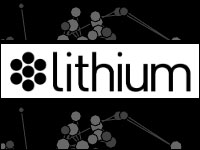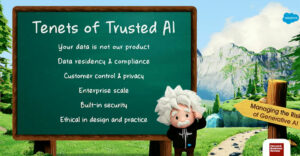
Lithium Technologies acquired Social Dynamx this week and moved immediately to bring a combined product to market: Lithium Social Web is available now.
The two companies offer complementary functionality, which made the acquisition a natural fit, said Rob Tarkoff, CEO of Lithium. Terms of the deal were not disclosed.
“We build communities for customer interaction that solve problems,” said Tarkoff. “The features on these platforms include social support, commerce marketing and so on.”
Social Dynamx provides optimized workflow-based tools for agents to respond to customer queries and requests over social channels such as Twitter and Facebook.
Put another way, “they are aimed at the agent-based workflow, and we are aimed at the customer generated workflow.”
History of Collaboration
The new product, which is already integrated into Lithium Communities, is an integrated customer-to-customer P2P channel that sits on a company’s domain and has an agent-based social response tool, Tarkoff explained.
The two companies were able to move so quickly to bring the combined offering to market because they have co-developed in the past, he said.
“We like the way they built their product, which has a deep understanding of how contact center interactions work,” noted Tarkoff. “We also like how they prioritize issues, how the application focuses on self-learning, and how it manages the KPIs.” Those factors were some of the drivers of the acquisition.
How It Works
Lithium Social Web identifies relevant customer conversations — such as a complaint about a product or a question — on social channels. It then routes the comment to company agents, who can respond by embedding suggested content from customer communities or directing queries to relevant self-service channels.
For example, suppose someone were to tweet something about Time Warner, a customer of Social Dynamx. “It could be about the programming or one of its products,” suggested Tarkoff, “and depending on the parameters for keywords and search terms that they have set, they can monitor the conversation and then filter it to the appropriate agent.”
Let’s say the comment was about a particular show. The agent could then send the commenter to a community-based platform dedicated to the show.
Or suppose it was a question about when and on which channel a certain show would air. In that case, the rep would send the commenter to a self-service programming menu.
A Win, Win
For the customer, Tarkoff said, the end result is a good overall experience.
For companies using the application, there is also a decreased cost of agent training and improved agent response time, he added. “One advantage to this application is that you can avoid the high costs of a traditional call center.”























































